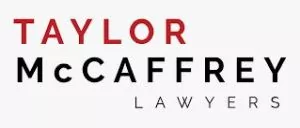This article was written for Prairie Manufacturer Magazine Spring/Summer 2024 issue
How to respond to employee's pronouns and chosen names is both a practical and legal issue facing employers. In this article, we explore the importance of correct pronoun and name usage in the workplace, its impact on employees, and the potential legal implications for employers.
Understanding Pronouns in the Workplace
Pronouns—words we use to refer to people without using their names, such as "he", "she" or "they"—play a critical role in affirming individuals' gender identities. Respecting an employee's self-identified pronouns demonstrates respect for their identity, contributing to a positive work environment.
Similarly, a chosen name is the name a person wishes to be called by others. For non-binary and transgender employees, a chosen name is not merely a nickname – it is the name that aligns with and reaffirms their chosen identity. For some, the name they were assigned at birth, if used, can cause feelings of harm and trauma, and invalidate their gender identity.
The Importance of Policies Concerning Pronouns and Chosen Names
Implementing inclusive policies around pronoun and name usage in the workplace is essential for creating a welcoming environment for employees of all gender identities. Simple actions, such as including pronouns in email signatures or during introductions, and ensuring employment documents (such as business cards, internal announcements, etc.) use and respect chosen names can make a significant difference. Employers can also provide training and resources to staff about gender diversity and the importance of pronouns and proper name use to prevent harmful misgendering and foster a culture of inclusivity.
Legal Implications for Employers in Manitoba
The Human Rights Code protects against discrimination on the basis of gender identity. Pronouns and chosen names are fundamental to one's gender identity and an employer's failure to acknowledge and respect an employee's pronouns or chosen name, or failing to take reasonable steps to intervene in workplace harassment connected to an employee's pronouns or chosen name, may be in breach of the Code.
Using the correct pronouns and an employee's chosen name is not an accommodation to be made – it is a legal obligation that must be respected.
Potential Legal Consequences
Failure to respect an employee's pronouns could lead to complaints under human rights legislation. This can result in legal proceedings before human rights tribunals, where employers could face orders to change practices, pay compensation, and undertake human rights training.
Similarly, whether or not an employee's legal name is the same as their chosen name, failure to respect and abide by it can result in the same potential consequences. Deadnaming – the act of calling a gender-diverse person by the incorrect name (usually the name they were assigned at birth) – when done intentionally, has been found to be a human rights violation and has resulted in compensation awards.
These legal outcomes not only have financial implications for employers but can also negatively affect the employer's reputation and workplace morale.
Best Practices for Employers
Employers can consider adopting the following best practices when addressing pronouns and chosen names (and by necessity, gender identity) in the workplace:
Implement and Enforce Clear Policies: Develop policies that respect employees' gender identities, chosen names and pronoun preferences, integrating these policies into employee handbooks and training programs. Also consider policies for changing pronouns and chosen names and put in place a process for employees to do this confidentially.
Educate Employees: Offer training to all employees on the significance of pronouns, chosen names, and gender diversity. Include information on the legal obligations of the employer and individuals under Canadian human rights laws.
Adopt Gender-Inclusive Practices: Make it a company practice to incorporate gender neutral language in greetings, emails and conversations. Instead of "Hey, guys!" or "Welcome, ladies!" try "Hey, folks!" and "Welcome, everyone!" Similarly, instead of "Dear Sir/Madam" try "Dear [Company Name] Team" or "To Whom it May Concern". Lastly, to avoid misgendering, instead of addressing correspondence to "Dear Mr. Doe", omit titles completely and use full names instead, such as "Dear John Doe".
Encourage Self-Identification (But Don't Mandate It): Allow employees to voluntarily share their pronouns and chosen names in ways that feel comfortable to them, such as in meetings, on name tags, or in digital communications. Similarly, confirm with employees upon hire whether they wish to be referred to by their legal name or a different name, and confirm their pronouns. In all cases, respect an individual's privacy and consent in these matters.
Let Employees Lead: Some gender-diverse employees may be out and proud, while others may not be comfortable with the whole office being aware of changes to their gender identity. In either case, employers should ask what the employee is comfortable with and how the employer can support them at work. Respect, consideration, and employee autonomy in their choices go a long way towards creating a safe and respectful workplace.
Address Mistakes Appropriately: Create an environment where mistakes in pronoun and name usage are corrected in a respectful and educational manner, distinguishing between unintentional errors and intentional disrespect.
Stay Informed: Keep up to date with legal and societal changes related to gender identity and expression. Laws and norms continue to evolve, and employers need to adjust their policies and practices to remain inclusive and compliant.
Tips for Employees
Employees of all genders also have responsibilities when it comes to gender inclusivity in the workplace. There is no legal obligation on an employee to inform their employer about details concerning gender identity – but if you have chosen to be out with your identity, it is important to share this information with your employer. Employees who change their pronouns or names and want this reflected in the workplace should inform their employers about the changes and how they want other employees to become aware of it. Let your employer know what does and does not work for you and be open to dialogue about how to make the workplace safe and respectful.
Co-workers of gender-diverse employees must follow any policies or practices their employer adopts and should make efforts to support and respect the pronouns and chosen names of their colleagues. Individuals can also face liability under the Human Rights Code, and harassment of co-workers can have real and significant consequences for individuals.
Conclusion
In Manitoba, the respectful use of pronouns and chosen names in the workplace is more than a courtesy; it's a legal obligation under human rights law. By fostering inclusive policies and practices, employers can create a work environment that respects and values all employees, mitigating legal risks and improving workplace culture.
The content of this article is intended to provide a general guide to the subject matter. Specialist advice should be sought about your specific circumstances.



